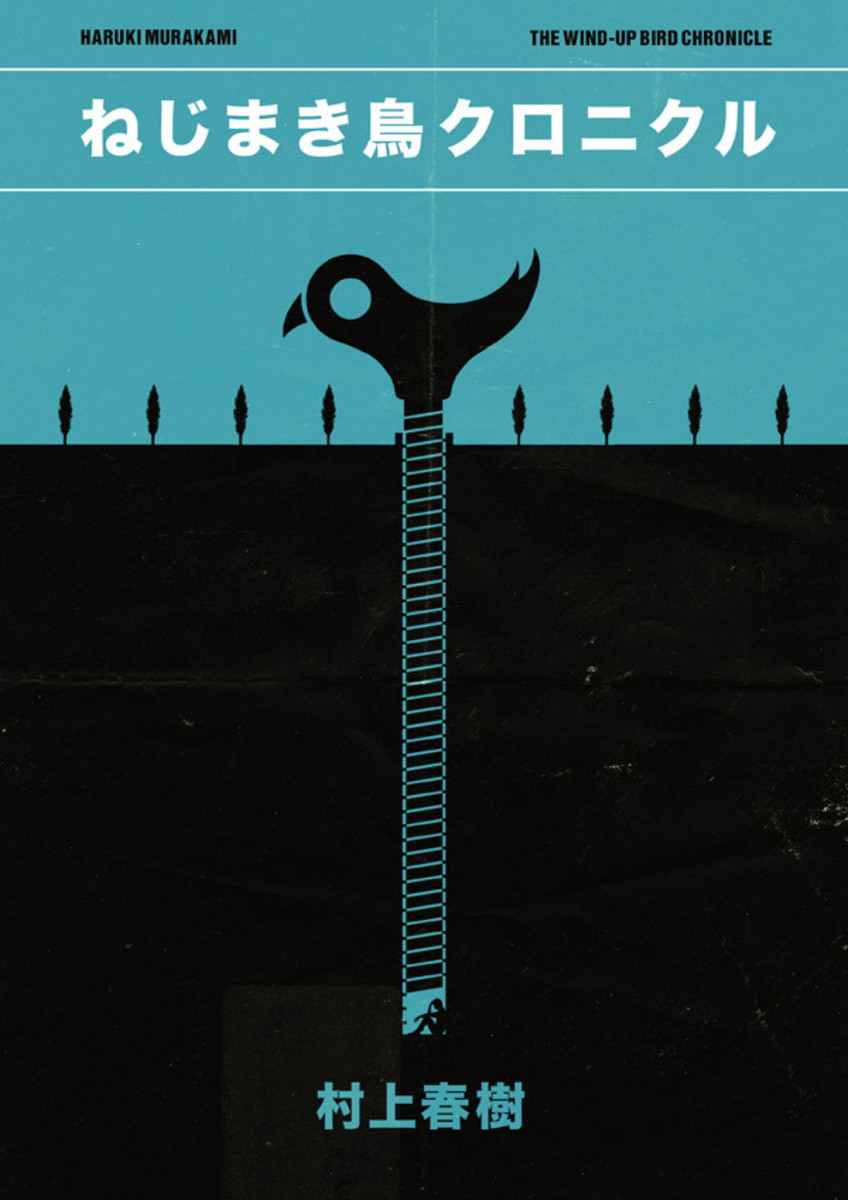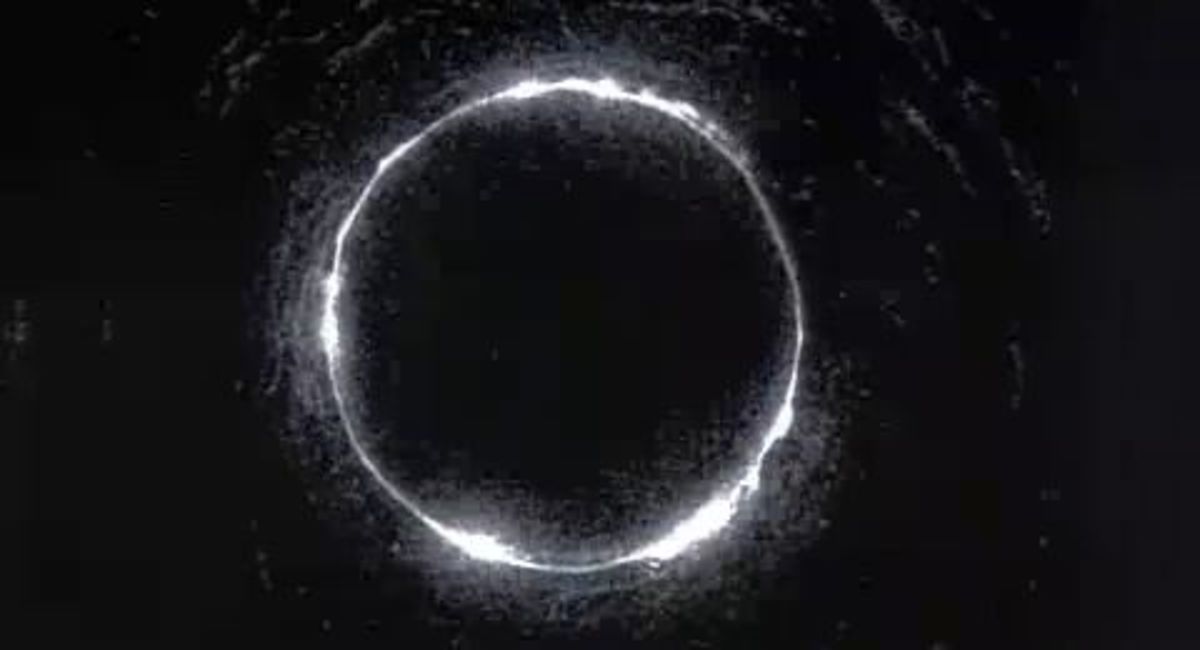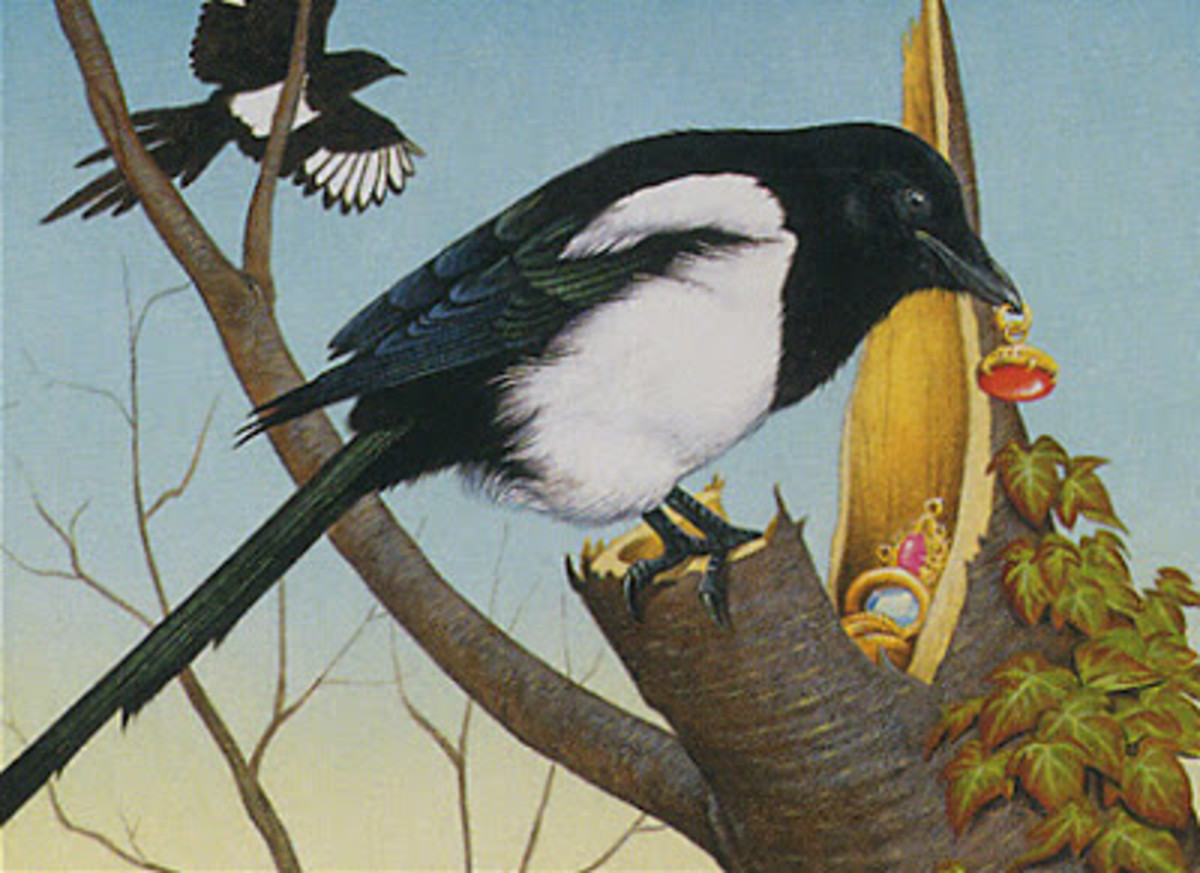Read the Wind Up Bird Chronicle Online
The Air current-up Bird Relate Review - Lunchtime Lit with Mel


Salutations from My Shady Lunchtime Haven
My favorite moment of my Postal solar day is when I park below my favorite, albeit only tree on my route, break out whatever voluminous novel I am reading at the time, and disappear for a while into the pretend worlds represented in those pages; lowering myself downwardly deep into a peaceful well. As I munch and read simultaneously, giving lie to the female person myth that men are not capable of multi-tasking, I do my best not to spill yogurt or crumbs on the pages. Getting even the tiniest crumb on a book is one of life'south little irritants for me. Curtained beneath 2 or 3 hundred pages these micro food pebbles turn into cached boulders, speed bumps on the road of i'south literary enjoyment, and it becomes a distracting crusade for me to discover them and dig them out.
As I blissfully turn pages in my shady oasis I am sometimes regaled with the songs of passing birds. October through April seed eating White-crowned Sparrows bounciness by, unaware or indifferent to my presence in the Postal vehicle higher up. Sometimes I hear the shrill cry of a bug-munching Phoebe, perhaps denouncing my temporary, one-half hour occupation of what it considers its own lunch spot. Lately I accept been hearing more and more of the monotonous three annotation cooing of the invasive Eurasian Collared Dove that has thoroughly disseminated itself through our Southern California airspace. But thankfully my eardrums have non yet been exposed to the ominous portent of Haruki Murakami's Wind-up bird, the bird that winds the spring of the world, a species that is heard by very few then but to hearken their impending, unavoidable distress, or perhaps doom. The call of Murakami'south Wind-Up bird signals a descent into a strange parallel world; a place where dreams get indistinguishable from reality and where wisdom, truth, and solutions are obtained in dark, inaccessible places, like at the bottom of a well.

The Rules
If yous read my previous review of Shantaram, past Gregory David Roberts, yous already know that my rules for Lunchtime Lit are rigid and without compromise, except when I declare them to be compromised. The volume must exist read only on my half hour Postal tiffin pause, never being lugged habitation to sneak surreptitious reads on the porcelain reading chair or while snuggling in for bed. The integrity of my Lunchtime Lit reading adventure remains intact, and below is a recap of the books I have reviewed thus far under these flexibly rigid criteria:
Lunchtime Lit Recap
| Book | Pages | Word Count | Date Started | Date Finished | Lunchtimes Consumed |
|---|---|---|---|---|---|
| Shantaram | 933 | 387047 | 4/27/2015 | seven/twenty/2015 | 46 |
| The Current of air-Upward Bird Chronicle | 607 | 175000 (Est.) | 7/21/2015 | 9/08/2015 | 28 |
Winding up The Plot
There is not much I can put down in words almost this latest edition to my Lunchtime Lit list, The Current of air-Up Bird Chronicle, that will make yous want to bound up and buy it right now, or e'er. The protagonist, Toru Okada, is superficially a very ordinary man with a very ordinary name co-ordinate to Japanese standards, who quits his twenty-four hours job to live a very ordinary life as a stay at home hubby, although sometimes performing somewhat out of the ordinary errands like cooking spaghetti for breakfast. The plot of the volume seems ordinary as well, to the bespeak where I get a niggling pink in the face explaining it to y'all while at the aforementioned time saying I enjoyed information technology a lot. Only there are also very out of the ordinary things about Mr. Okada, and near this book as well. Toru has an uncommon facility for recharging the free energy of people through physical contact with them. He is, in fact, the very wind-upward bird he hears in the afar trees; the one that winds the spring of the world. Unknown to our protagonist, however, the Wind-Upwards bird declares a prophetic call that his life is about to descend into a surreal shadow land in which reality is redefined or, better yet, perhaps defies definition.
Toru is partaking in his unusual Spaghetti breakfast and listening to the cry of the Current of air-Up bird in yonder tree when he receives a strange, semi erotic phone call from an unknown adult female. Shortly after hanging upwards from this weird conversation his cat runs away, followed past his wife, after which he receives visits by increasingly baroque women. Some of these ladies are completely naked, others article of clothing red vinyl hats. Some other date with an onetime Japanese soldier who fought the Soviets in the unheralded, largely unknown Nomonhan entrada gives Mr. Wind-Upwardly Bird (the name Toru is given by his perky teenage female neighbor) the insight he needs to rescue his married woman, and maybe humanity, from a villainous politician who also happens to be his blood brother in police force. Mr. Air current-Upward bird descends into the night depths of a dry well on a neighboring vacant lot, where armed only with a baseball bat he takes on the evil forces of the Universe. Aye I know information technology sounds stupid, but information technology is written is such a captivating style that information technology doesn't give that impression to the reader at all. It kept me turning the pages and wishing that my tiffin break was longer than a mere half hour.

Shitty Coconuts - What it Means
Okay, I'll admit that The Wind-Up Bird Chronicle sounds rather silly and uninspiring on its face, but it presents several bright, often amusing observations on life and the nature of reality. Toru Okada leaves his job to get The Wind-Upwardly bird savior of humanity considering he has rejected the intensely masculine, soul-killing ambition embraced by Japanese society and personified by his evil brother in law Noboru Wataya, a popular tv talking-head economist turned politician. The difference in personal philosophy between the protagonist and Noboru are fittingly expressed over a combative lunch. During this tense coming together Toru relates to Noboru a metaphor about a distant, fictional isle, so "peculiar" information technology is unworthy of a name, a place so foul it even has a "peculiar" shape. I had to substitute "peculiar" for a rather notorious word beginning with the letter 's' that temporarily got my ads disabled on this article.
On this shitty island grow palm copse that also have shitty shapes. And the palm trees produce coconuts that requite off a shitty olfactory property. Shitty monkeys alive in the copse, and they love to eat these shitty-smelling coconuts, later on which they shit the world's foulest shit. The shit falls on the ground and builds up shitty mounds, making the shitty palm trees that grow on them even shittier. It's an countless cycle.
— Haruki Murakami The Current of air-Upwards Bird Chronicle Page 202
This quote is probably the best, most succinct summation of our frenzied, ambition driven, dog eat canis familiaris, bleeding ulcer and bursting claret pressure modernistic lives that I have always read. The shitty coconuts are our superficial, society dictated ambitions that we relentlessly pursue to the peril of our families, friendships, and gentler, more serene, deep and wistful emotions and thoughts. We willingly cede our humanity and long term peace of mind for the fleeting benefits that condign these shitty monkeys with their cocky-perpetuating shitty wheel returns.
There are other meaningful themes in The Wind-Up Bird Chronicle that centre around the visible and invisible sides of reality, the connection between what we see with our physical eyes and what our inward eyes see when we go to slumber and dream. One of Murakami's characters states "In that location'south a kind of gap between what I think is real and what's actually real. I go this feeling like some kind of picayune something-or-other is there, somewhere inside me...like a burglar is in the firm, hiding in a cupboard...and it comes out every in one case in a while and messes up whatever social club or logic I've established for myself." Reality is made up of both seen and unseen layers. "A" does non necessarily cause "B" to happen all of the time, even if they have a more often than not accepted crusade and event human relationship. One can put rice pudding in the microwave and every one time in a while come out with macaroni gratin when the bell rings. As individuals we don't even control our own crusade and upshot. As another of Murakami's very colorful female characters says "I experience as if my every motion is being controlled by some kind of incredibly long arm that's reaching out from somewhere far away, and that my life has been nothing more than a convenient passageway for all these things moving through it." At that place is a "hollow man" that stalks our footsteps asleep or awake, and interrupts the "menstruation" of our spiritual energy that seems and then important to Japanese thought.

Read the Wind-upwardly Bird Chronicle - Cheep
Bird Motifs
As befits its championship, The Current of air-Up Bird Relate is replete with motifs of an avian nature. The three sections of the book are entitled "The Thieving Magpie," "Bird equally Prophet," and "The Bird Catcher," all referring to works of classical music, of which Mr. Murakami seems to be very well versed. The Thieving Magpie is an operetta past Gioachino Rossini that tells the story of a young daughter who is falsely defendant of theft subsequently a Magpie steals a silver spoon from an chantry. From the bottom of his well, Toru'southward dreams include a hotel waiter who whistles this opera'southward overture as he makes his rounds. Bird as Prophet is drawn from composer Robert Schumann'due south Forest Scenes op. 82, which includes a shy Cuckoo that has a prophetic gift to foretell the time to come or bring practiced luck. The Birdcatcher Human hails from the Magic Flute, an opera past Mozart where the state of the dark attempts to recapture a princess from the country of the day. As says Nutmeg, another of Murakami'due south interesting female supporting actresses, "Midway through the opera, the heroes tin can't tell any longer which side is right-who is being held captive and who is not." Papageno, the bird catcher in the opera, charms birds using magic bells and charms. Noboru Wataya, The Wind-upwards Bird's villain, charms the unwitting public through the magic of the TV screen, which he dominates.
Perhaps the almost telling attribute of bird and anti-bird allusions in the novel is that the cat which serves as catalyst for Toru's downward spiral is named Noboru Wataya, after the antagonist of the story, which the animal superficially resembles. What do cats practice all-time? - they stalk birds. Also revealing is the resemblance of Toru's start proper name to "Tori," the Japanese word for bird. Birds literally flock to this narrative, but fully interpreting the bird symbolism in The Wind-upwardly Bird Chronicle would require repeated readings and hours of exhausting study which I don't have at my disposal.
1 of the things I well-nigh loved about the Wind-up Bird is the degree of difficulty it presents, its ultimate meaning wrapped up in a complex nest of symbolism, avian and otherwise. There is a lot more here than a silly semi-supernatural story about an abandoned husband who dreams dreams at the lesser of a well. Woven amid the twigs there are plenty of secret messages to requite the slumbering chicks weird dreams at night.

About the Writer
The Wind-up Bird Chronicle creator Haruki Murakami is i of Japan'south best-selling authors, partly because of his rejection of Japan'south misogynistic, militaristic samurai civilisation and his condemnation of Japan's record in Earth State of war Ii; although he retains sympathy for the mutual foot soldier, whom he portrays every bit equally victimized past the wartime government. For this reason, and for his repeated references to Western literature and music he includes in his books, the Japanese literary establishment has criticized him as being united nations-Japanese. His western-leaning works accept instead been classified as into the genres of surrealism, magical realism, and post-modernism.
Murakami's male protagonists may seem rather effeminate to some, particularly to those of the male person dominated Japanese culture of the preceding century. They melt dinner, dust the shelves, and practise the laundry. Jamie James of the New York Times portrays them as existence "soft, irresolute men," merely to me this definition misses the marker. They may be soft and and rather metrosexual in their approach to 24-hour interval to day living, but irresolute they are not. Toru Okada pursues the rescue of his wife from the evil Noboru Wataya with a indomitable conclusion that defies the ability of Japan'southward established political civilization and society at large. To me this "Wind-up Bird" man is a breath of fresh air, an exhilarating change from the shoot-em upwardly pretty boys that monotonously litter the literary mural.

Conclusion - Definitely Worth Your Time, Simply Are Y'all Ready?
If yous are going to enjoy The Air current-Upwards Bird Chronicle you have to set up yourself to make a clean break from what you are used to in supernatural fiction, then lower yourself downwardly into your own literary well and pray that nobody locks the embrace above because you lot might not come out again. I didn't want to reemerge from this delightful waterhole later on weeks of being semi-submerged there. The poetry of Murakami's words alone kept me entranced and enthralled from commencement to end.
During a recent word of literary and cinematic symbolism, a friend of mine ranted, perchance justifiably, "Why don't they just say what they have to say? Why do they have to hide information technology?" Maybe this is true, maybe he makes a good point. But even if you not the wistful sort that likes to furrow your brow and ponder the symbolic implications of a story, there is enough lying plainly on the surface of The Current of air-upward Bird Relate to satisfy you. The terrible descriptions of the Nomonhan campaign and the plight of the Japanese prisoners of war who suffered in Soviet prisoner of war camps afterward are alone worth the price of admission into Murakami'south multi-layered shadow country. So bring your escape ladder and baseball bat only in case, dig your well, and prepare to be entertained in a very unconventional style.
What'due south Your accept on Literary Symbolism?
Practise you enjoy contemplating themes and symbolism in literature, or do you just desire a direct up story?

Cursory Air current-up Bird Spoof with Thieving Magpie Soundtrack
Source: https://hubpages.com/literature/The-WInd-Up-Bird-Chronicle-Review-Lunchtime-Lit-with-Mel
Posting Komentar untuk "Read the Wind Up Bird Chronicle Online"